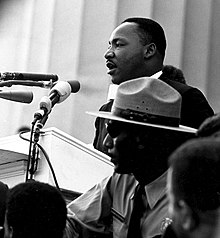
Back National Recording Registry German United States National Recording Registry ET فهرست ملی ضبط اصوات FA National Recording Registry Finnish Registre national des enregistrements French Pendaftaran Rekaman Nasional ID National Recording Registry Italian 全米録音資料登録簿 Japanese Nationalen Toundokument Regëster (USA) LB Pendaftaran Rakaman Kebangsaan Malay

The National Recording Registry is a list of sound recordings that "are culturally, historically, or aesthetically significant, and/or inform or reflect life in the United States." The registry was established by the National Recording Preservation Act of 2000,[1] which created the National Recording Preservation Board, whose members are appointed by the Librarian of Congress. The recordings preserved in the United States National Recording Registry form a registry of recordings selected yearly by the National Recording Preservation Board for preservation in the Library of Congress.[1]
The National Recording Preservation Act of 2000 established a national program to guard America's sound recording heritage. The Act created the National Recording Registry, The National Recording Preservation Board and a fund-raising foundation.[2] The purpose of the Registry is to maintain and preserve sound recordings and collections of sound recordings that are culturally, historically, or aesthetically significant.[1] Beginning in 2002, the National Recording Preservation Board has selected recordings nominated each year to be preserved. On January 27, 2003, the first 50 recordings were announced by James Billington, the Librarian of Congress.[3]
The first four yearly lists each had 50 selections. Since 2006, 25 recordings have been selected annually. As of 2024[update], a total of 650 recordings have been preserved in the Registry. Each calendar year, public nominations are accepted for inclusion in that year's list of selections, which are announced the following spring.
Registry title works, original or copies, are housed at the Library of Congress' Packard Campus for Audio Video Conservation. Each yearly list typically includes a few recordings that have also been selected for inclusion in the holdings of the National Archives' audiovisual collection. Recordings on the National Recording Registry that are of a political nature tend to overlap with the audiovisual collection of the National Archives.
- ^ a b c "Current Registry". The Library of Congress. November 3, 2006. Retrieved February 9, 2007.
- ^ "Overview". The Library of Congress. November 16, 2006. Retrieved February 26, 2007.
- ^ Blair, Elizabeth (January 27, 2003). "Preserving the Sounds of America's Culture". NPR. Retrieved January 26, 2022.